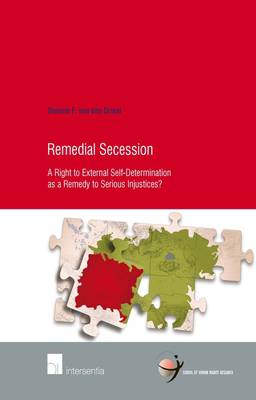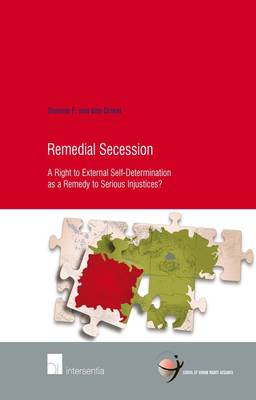
- Retrait gratuit dans votre magasin Club
- 7.000.000 titres dans notre catalogue
- Payer en toute sécurité
- Toujours un magasin près de chez vous
- Retrait gratuit dans votre magasin Club
- 7.000.000 titres dans notre catalogue
- Payer en toute sécurité
- Toujours un magasin près de chez vous
Remedial Secession
A Right to External Self-Determination as a Remedy to Serious Injustices? Volume 61
Simone Van Den Driest
99,45 €
+ 198 points
Description
It is increasingly suggested in literature that a right to unilateral secession, stemming from the right to self-determination of peoples, may arise in case of serious injustices suffered by a people. In those extreme circumstances, an alleged right to unilateral secession operates as an ultimum remedium. While such a right to remedial secession may well be morally desirable, the question is to what extent it has actually emerged under contemporary international law. The right to self-determination of peoples is generally considered to be one of the most fundamental norms in international law. Outside the context of decolonization, the right to self-determination is a continuous right, which is to be exercised primarily within the framework of an existing State. In contrast to this internal dimension of self-determination, claims to external self-determination beyond decolonization are much more controversial, primarily due to their relation with the principle of territorial integrity of States and the fear of the international community of creating disrupting precedents. In seeking to answer the question as to the extent to which a right to remedial secession has emerged under contemporary international law, this book examines the conventional content and meaning of the right to self-determination and scrutinizes whether the various sources of international law disclose (traces of) a right to remedial secession. Assessing the existence of a customary norm in this respect, the international responses to attempts at unilateral secession are examined, paying particular attention to the recent case of Kosovo. It is concluded that while there is a certain body of support for the doctrine of remedial secession, no (customary) right to remedial secession has materialized under contemporary international law. However, in view of the humanization of the international legal order, an entitlement to remedial secession might emerge in the future. (Series: School of Human Rights Research - Vol. 61)
Spécifications
Parties prenantes
- Auteur(s) :
- Editeur:
Contenu
- Nombre de pages :
- 386
- Langue:
- Anglais
- Collection :
Caractéristiques
- EAN:
- 9781780681535
- Date de parution :
- 09-04-13
- Format:
- Livre broché
- Format numérique:
- Trade paperback (VS)
- Dimensions :
- 170 mm x 240 mm
- Poids :
- 707 g







